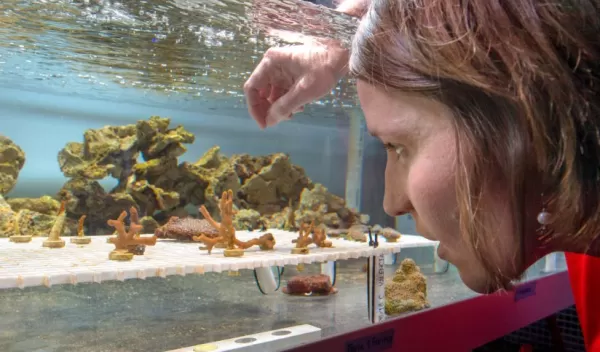
Hope for coral recovery may depend on good parenting
The fate of the world's coral reefs could depend on how well the sea creatures equip their offspring to cope with global warming.
About half the world's coral has been lost due to warming seas. Rather than displaying vivid colors, coral bleach out as temperatures rise. That happens because corals cohabitate with algae, which vacate the premises under stress. Then corals lose their color and a partner that sustains them, so they starve.
Yet hope is found in aquariums at the University of Southern California and the Australian Institute of Marine Science. There, biologists study corals' unusual ability to shuffle their so-called symbionts -- the algal colonies inside their cells -- as a coping mechanism to gain an advantage in a changing environment.
The researchers discovered that adult corals can pass along the shuffled symbionts to their offspring across generations. This process wasn't observed until scientists began captive breeding in labs on both sides of the Pacific Ocean.
The findings appear in a paper published in Scientific Reports.
In times of environmental stress, corals capable of shuffling their symbionts may develop a new set of partners that help them survive. Passing this combination on to the next generation will give the progeny an edge to survive in bad times.
"Corals are the canaries of the ocean, signaling adverse changes through bleaching events," says Amanda Simcox, a program director in NSF's Division of Biological Infrastructure, which funded the research. "Discovering how some corals survive thanks to the algae that live inside them, and how they pass on this survivor strategy to their descendants, is a very exciting finding."
